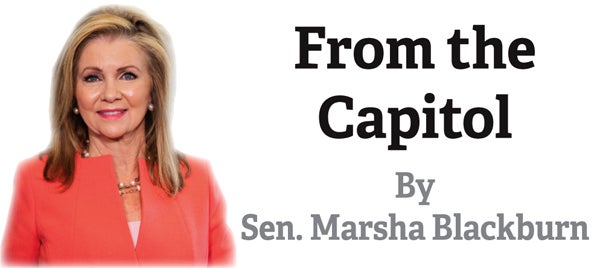The First Amendment and Twitter…what is free speech?
Published 2:27 pm Tuesday, January 24, 2023
|
Getting your Trinity Audio player ready...
|
BY DR. JAMES FINCK
Twitter has been an ongoing story since the Trump presidency and ramped up even more when Twitter suspended Trump’s account after the events of Jan 6, 2021. Many felt Twitter was wrong in suspending Trump’s account, citing free speech. Of course, Twitter is not the only social media platform that has come under attack for limiting free speech, as Facebook has had similar issues and has been accused of limiting conservative speech. The argument seems to stem from the questions: What is free speech? Does social media constitute a public space? Historically speaking, the argument between public and private is not new and maybe a case from the Gilded Age about trains can shed some light.
Whenever plausible, I like to start with the Constitution and the law. The First Amendment states, “Congress shall make no law respecting an establishment of religion or prohibiting the free exercise thereof; or abridging the freedom of speech, or of the press; or the right of the people peaceably to assemble, and to petition the government for a redress of grievances.” This is possibly the most misunderstood clause in the Constitution. It does not say individuals can say whatever they want with no consequences. It says Congress cannot pass laws against free speech. In other words, you can attack the President (with words) and not go to jail, but it does not mean you can attack your boss and not get fired.
Here is the thing about social media platforms like Twitter or Facebook. They are privately owned. As privately owned businesses, they can make their own rules about what can and can’t be posted on their pages. They can also choose who can and who can’t use their pages as long as it’s not an illegal reason. Quick example: a private club can deny a membership to an overweight person but not a Jewish person. One is morally wrong but the other is illegal. The courts have routinely dismissed cases that claim First Amendment rights have been violated on social media, even though there are currently cases in the 5th and 11th districts that will probably be sent to the Supreme Court to be determined once and for all, but for now people do not have the right to free speech on social media platforms.
What does this have to do with trains? Well, by 1871 there was a growing movement known as the Grange. During this era, government did very little. This was not a problem because no one expected it to. The day of expecting government involvement in all aspects of our lives had not yet begun. In fact, it was the Grange movement that first nudged government in that direction. Farming was a difficult occupation, then and now. Much of a farmer’s success depended on aspects out of the farmer’s control, like weather. Farming also depended on a cycle of taking out loans, which would be paid off after harvest, meaning constant debt. One bad year could crush a farmer. Farmers began looking to the cities where they saw labor organizing into unions. Unionization was impossible for farmers, but they did organize themselves into the Grange where they could work together for social and economic needs of farmers.
The Grange was not meant to be political, but as it grew, people realized that they did have power, especially in the Midwest and Plains states, where most of the population were farmers. They began to ask their state governments for help. This eventually grew into the Populist movement. The Grange and later the Populists asked for government assistance for things like loans and, most importantly, for silver to be added to the Gold Standard to allow more money into circulation. They also asked state governments to regulate the rates that agricultural storage facilities could charge for crops waiting for shipment. Every town had some type of storage facility owned by the railroad and everyone had to use them. In 1871 voters put enough pressure on their elected officials in Illinois to pass a law regulating rates. This type of regulation was unheard of at the time and the Munn Company took the government to court, claiming the government did not have the right to regulate a private company.
In the case of Munn v. Illinois, the Illinois court and Illinois Supreme Courts both sided with the state, so the case was brought before the U.S. Supreme Court. In what was a landmark decision for the Populist movement, the Supreme Court sided with the state, ruling was that the state may regulate private property “when such regulation becomes necessary for the public good.” Justice Morrison Waite based his decision on the legal doctrine that “when property is affected with a public interest, it ceases to be juris privati only.” What this meant was that when most of the population requires the use of the storage facilities, then those facilities essentially become public property. Hence, the state can regulate the facilities’ rates. The Populists went on to use this precedent to get government more involved with everyday life.
While I am not a lawyer, nor do I pretend to be, and I understand we are comparing apples and oranges, there seem to be some principles that are the same. Social media is part of our lives and, in fact, has become necessary for many to do business and promote their brands. In the case of platforms like Twitter, it may be possible to make the case that Twitter is as much a public necessity today as storage facilities were back in the Gilded Age.
(Dr. James Finck is an Associate Professor of History at the University of Science and Arts of Oklahoma in Chickasha. He is Chair of the Oklahoma Civil War Symposium. Follow Historically Speaking at www.Historicallyspeaking.blog.)




